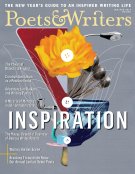Last September the New York City–based company Oyster Books launched its new e-book subscription service, a $9.95-per-month all-you-can-e-read buffet that commentators were quick to identify as the “Netflix of books.” Then, in early October, the San Francisco–based Scribd, a six-year-old digital document-sharing company that had previously offered user-uploaded content such as academic papers and unpublished writing, announced a new “premium” membership option, through which subscribers could have unlimited access to an online library of e-books—a new addition to the company’s digital vaults—for $8.99 per month.
Many library systems have incorporated “borrowing” of digital works into their services, and e-books have for some time been available for individual purchase via Amazon, Google, and other platforms large and small. Against this backdrop, Oyster and the new Scribd service are innovative for offering users boundless access to their libraries. The book-ravenous can e-read as much or as little of anything in either company’s subscription database as they want, whenever they want, with no expiration or return date, for as long as the subscription is maintained.
Early criticism of both platforms, however, has been focused on their libraries’ limitations. Oyster and Scribd each offer upwards of one hundred thousand titles (from hundreds of publishers), which reviewers have noted is relatively low and which industry reporters suggest will need to increase in order for either company to survive. Both platforms are acquiring new titles as often as weekly. In the meantime, as a recent New Yorker blog post about Oyster with the headline “What Does It Mean to Own a Book?” pointed out, these services, with their good-but-small array of offerings, will be less useful to readers looking for access to specific books than to people looking to read more in general.
According to Willem Van Lancker, cofounder and chief product officer of Oyster, getting people to read more is what he and the Oyster team are all about. “There’s been such an explosion of access to other media…you have the entire Internet in your pocket,” Van Lancker says. “Books haven’t kept up with that in a way that appeals to modern customers, so what we’re trying to do with Oyster is to sell the act of reading more.” Oyster first made its library available in an application designed specifically for iPhones (as opposed to tablet devices), the idea being that even though a larger screen might make for more ideal reading, almost everyone carries a smartphone. Although Oyster has since introduced an iPad app, Van Lancker says the company has already received positive feedback from users who have supplanted their idle iPhone puttering with active e-reading.
“There’s no downtime in our lives,” Van Lancker says. “I think with books, what you find is that it’s a much deeper, more engaging, and rewarding narrative, ultimately, than just reading Facebook status updates again and again, and I hope we can build an approachable and accessible way to package that.”
Scribd, too, is driving toward the dual goal of approachability and access, but from the content creator’s side of the hedge. The initial idea for an open-access digital document-sharing library came to founder and chief executive officer Trip Adler as a solution to difficulties his father was having with the lengthy process of publishing medical research in peer-reviewed journals.
“Then we thought, ‘We can do this for a lot more than just medical papers—we can do this for books, we can do this for school papers, we can do this for poetry, we can do this for PowerPoint presentations, for all kinds of different content,’” Adler recalls. “So we made a site that would let anyone take anything they wrote and put it on the web.”
For Adler, the recent expansion into licensed e-book subscription territory was part of an effort to respond to Scribd contributors’ wishes for better distribution and better revenue. “Instead of people thinking about what to buy, then making a purchasing decision, and then feeling obligated to finish reading the thing they bought, they can now just read whatever they want,” he says. “As a result, you get a very different type of reading behavior, and then a new type of audience.” Presently, the subscription library of Scribd Premium is not yet open for upload by anyone who’s interested, as is the original iteration of the site. For now Scribd Premium’s holdings consist exclusively of titles issued by the publishers Scribd deals with, but Adler’s hope is that, in time, the gap will be closed. “Eventually, we’re going to be opening this up to all authors,” he says, “so that you can write a poem and just upload it to the service and start monetizing it that way.”
Like Van Lancker, Adler has observed that books often lag behind most other forms of media in today’s ultra- technological zeitgeist. As to whether an active embrace of digitization will contribute to literary decline, Van Lancker points to the past. “If you look at history, we’ve been through this before,” he says, citing past fears that the advent of paperbacks would engender a deterioration of literary content. “There’s always this uncomfortable moment when we’re in a period of transition. At one point, someone had to go from scrolls to the codex, and that must have been uncomfortable too, right?”
In the meantime, both companies project increased collaboration with publishers; Oyster recently introduced gift subscriptions and plans to develop more social features on its app throughout the winter. “It all comes back to a belief that the book is a unique medium,” Van Lancker says. “You have these different units of stories and [ways of getting] information, and I think books are an incredibly interesting one to move forward into the twenty-first century.”
Rachel Lieff Axelbank lives in New York City and Hawaii, where she is writing a book about environmental and social history as expressed by the story of one particular plant.








